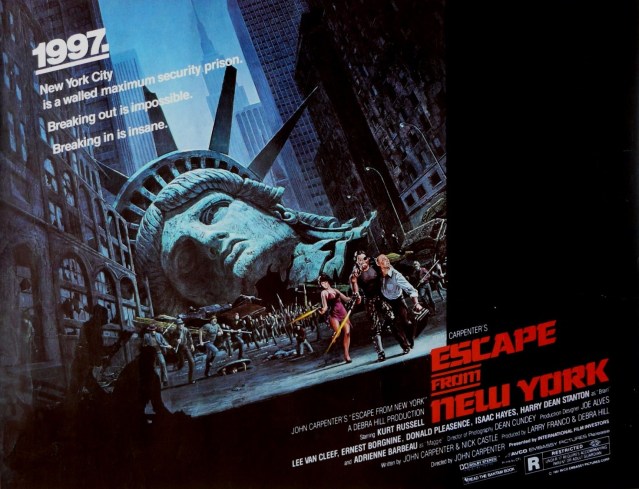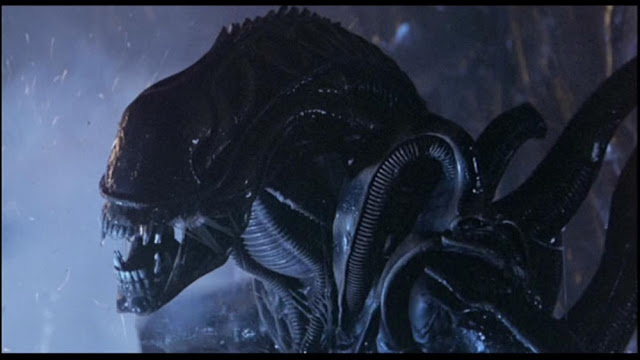Alien 2: The Military-Industrial Complex, Masculinity, and Body Horror
"Game over, man!" - Private Hudson, Aliens
The sequel to Ridley Scott's 1979's Alien, Director James Cameron’s Aliens hit theatres in 1986, thrilling with special effects, intense action scenes, and loaded with meaning. Aliens was a box office hit, earning more than $130 million and cementing the Alien franchise (mostly a good thing, though I could have done without Alien vs. Predator).
Sigourney Weaver was back in action as Ripley, but this time her sense of isolation as the last survivor on a spaceship, hunted by a single killer alien was replaced by a different kind of vulnerability as scores of aliens hunt her.
But just as the alien is no longer solo. Ripley has company. She takes on the role of a surrogate mother to a little girl as a military squad plays the masculine role of protector.
Alien 2 wasn't just a blockbuster action film. It makes a serious critique of the military-industrial complex, explores masculinity, and presents anxieties of childbearing with concomitant body horror. But Aliens is a pure joy to watch. By any standard, it's one of the greatest science fiction films.
We’ll explore all these elements, but let’s turn to the military-industrial complex as it relates to Aliens first.
Red Mars | Kim Stanley Robinson | SciFi Review
Red Mars hardly feels like a book written in the early ‘90s. It feels that Robinson had already peered into the 21st century and knew what was to come. Bruce Sterling, tongue in cheek, likes to say that he blames science fiction dystopias for all humanity’s problems, but the environmental effects we can expect as a result of the unchecked release of carbon in the earth’s atmosphere--the death of the ocean’s coral reefs, rising coastlines, rising global temperatures—are not expressly new news, even in the early ‘90s. Scientists studying the environment had made all of these connections by the late ‘70s. We have the corporate and political sectors to thank for not responding to the scientific community’s warnings with the due diligence required to significantly arrest climate change.
Alfred McCoy History Books - Policing America's Empire
Alfred McCoy describes the unethical practices of the great state of exception, America, in his book Policing America's Empire: The United States, the Philippines and the Rise of the Surveillance State (2009). Alfred W. McCoy’s focuses on military and police records in the Philippines. McCoy shows how the exercise of American Power from imperial rule a century hence continues its reflection back onto the homeland and on new territories of empire. The imperial influence in the Philippines set the ground rules for surveillance measures that continue today.
Best Cyberpunk Novels | 10 Amazing Science Fiction Novels
The ‘80s saw the birth of cyberpunk, one of the best (or maybe the best) subgenre of science fiction. Cyberpunk surged in popularity during the mid to late '80s, with its practitioners winning major science fiction awards and the genre rewriting the rules for writing science fiction.
William Gibson's Neuromancer instantly created a market for more of the gritty storytelling that merged the worlds of cyberspace with the burnt out urban spaces of the late 20th century. But cyberpunk can be found before and after the '80s, as we will see.
Subscribe to:
Comments (Atom)


